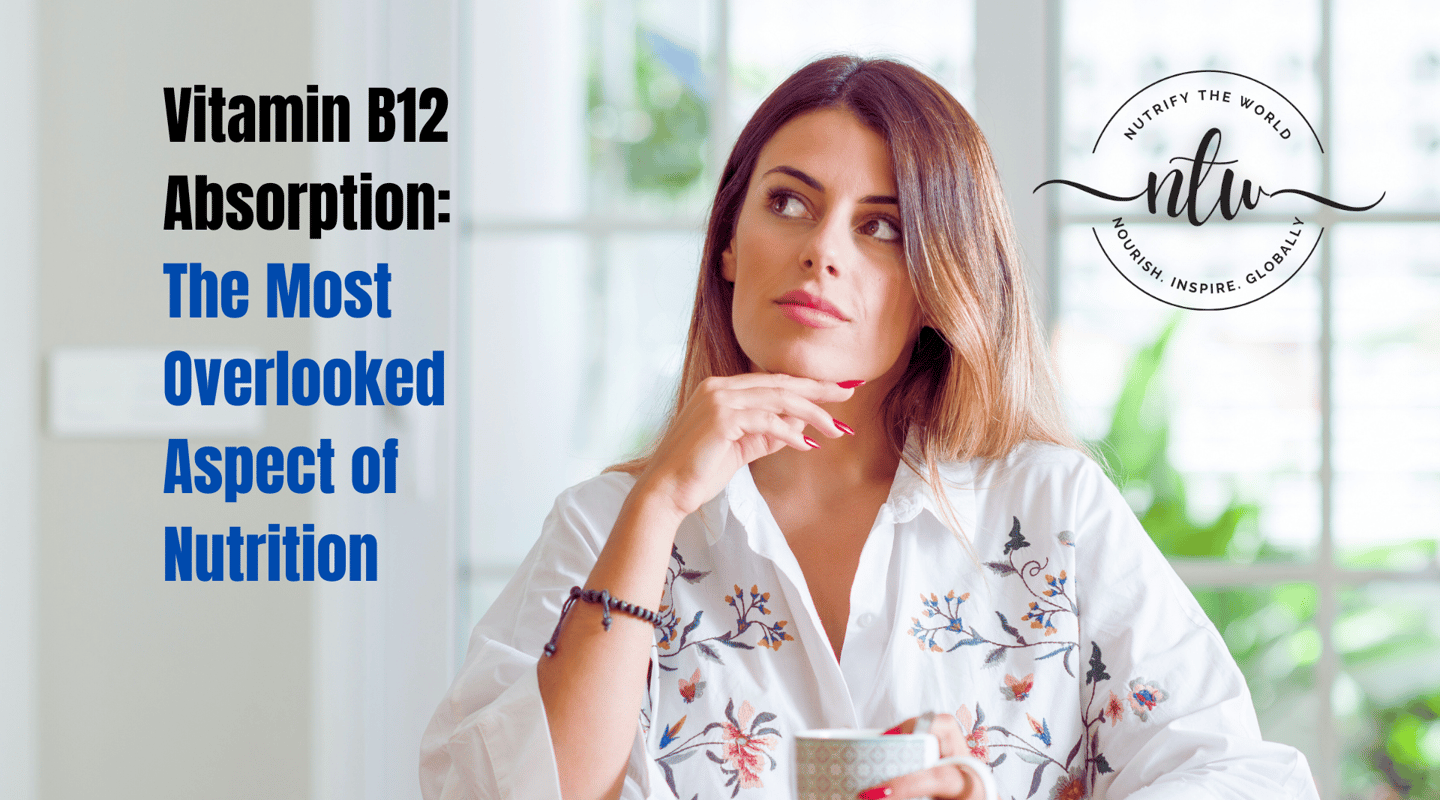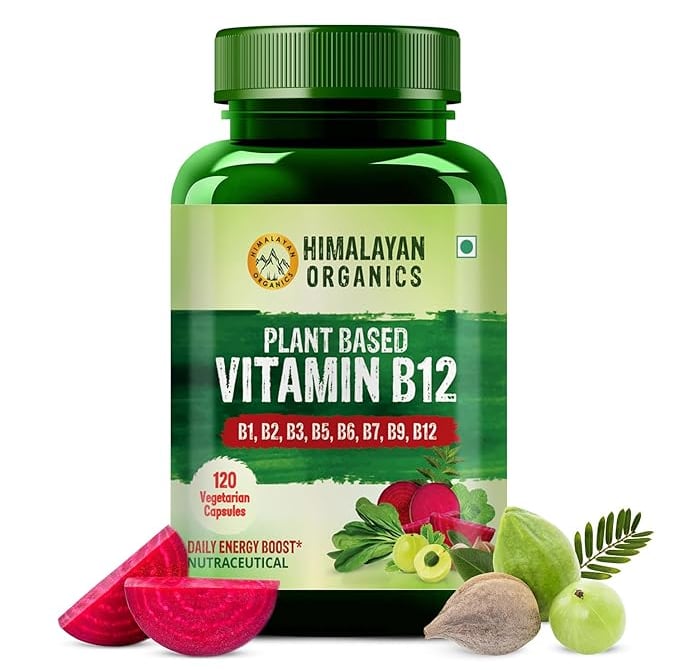India's Secret to Vitamin B12 Enriched Health : It's all about absorption !
Hey Readers! So, you know how we're always talking about eating healthy and making sure we get enough vitamins and minerals? Well, there's one vitamin that's super important but often overlooked – Vitamin B12. This little nutrient is crucial for keeping our blood cells healthy and our nerves working properly. But here's the kicker: just eating foods rich in Vitamin B12 isn't enough. Our bodies need to absorb it properly to actually reap the benefits.


Hey Readers! You know how we're always talking about eating healthy and making sure we get enough vitamins and minerals? Well, there's one vitamin that's super important but often overlooked – Vitamin B12. This little nutrient is crucial for keeping our blood cells healthy and our nerves working properly.
Understanding B12 ?
Vitamin B12, or cobalamin, is a water-soluble vitamin crucial for our body’s proper functioning. Unlike other vitamins, it contains a cobalt ion at its core, which is essential for its biological activities. It plays a significant role in forming red blood cells, and the healthy functioning of our nervous system. Discovered in 1948, B12 has been recognized for its importance in maintaining good health.
Why Vitamin B12 is required in the Body ?
Vitamin B12 is indispensable for the body's overall health, supporting blood formation, nervous system integrity, DNA synthesis, energy metabolism, and cardiovascular health. Ensuring adequate intake of this vitamin is crucial for maintaining these vital bodily functions.
Red Blood Cell Production: B12 is necessary for the formation of healthy red blood cells, which transport oxygen throughout the body.
Nervous System Health: It helps maintain the health of nerve cells and is involved in the production of myelin, the protective coating around nerves.
DNA Synthesis: B12 is crucial for DNA synthesis and repair, affecting cellular replication and overall cellular health.
Energy Production: It assists in converting food into energy, helping to maintain optimal energy levels.
Cardiovascular Health: B12 helps regulate homocysteine levels, an amino acid linked to an increased risk of heart disease.
Natural Sources
Vitamin B12 is naturally found in animal products such as meat, fish, poultry, eggs, and dairy. For vegetarians who consume dairy products and eggs, these can be sufficient sources. However, for vegans who do not consume any animal products, obtaining adequate Vitamin B12 is challenging.
Challenges for Vegans and Vegetarians
India, a country known for its diverse cultural heritage and rich culinary traditions, has a significant population that follows vegetarianism due to religious, ethical, and health reasons. The prevalence of vegetarianism and veganism is higher here than in many other parts of the world. While a vegetarian diet includes dairy products, a vegan diet excludes all animal-derived products, making it entirely plant-based. This shift towards plant-based diets has numerous benefits, including lower risks of chronic diseases and a smaller environmental footprint. But it also presents nutritional challenges concerning Vitamin B12.
Main Sources of Vitamin B12 for Vegans and Vegetarians in the Indian Context
1. Fortified Foods
Fortification is a practical approach to ensure sufficient Vitamin B12 intake. Several fortified foods are available in the Indian market:
Fortified Plant-based Milks: Products such as soy milk, almond milk, and oat milk are increasingly available and often fortified with Vitamin B12.
Breakfast Cereals: Many brands of breakfast cereals are fortified with vitamins and minerals, including B12. These cereals can be incorporated into traditional Indian breakfasts.
Nutritional Yeast: This versatile ingredient can be sprinkled on dishes like dosas, idlis, and curries to enhance flavor and provide a B12 boost.
Fortified Plant-based Meat Substitutes: Although less common, products like fortified tofu and tempeh are becoming more available in urban areas.
2. Supplements
Given the dietary restrictions, Vitamin B12 supplements are a reliable source for vegans and vegetarians in India:
Oral Supplements: Easily available at pharmacies, these can be taken daily or weekly as needed.
Sublingual Supplements: These dissolve under the tongue and may offer better absorption for some individuals.
Injections: For those with severe deficiencies, B12 injections are an effective option and can be administered by healthcare professionals.
In the Indian context, where vegetarianism and veganism are prevalent, ensuring adequate Vitamin B12 intake requires careful planning and consideration. Fortified foods and supplements remain the most reliable sources of B12 for vegans and vegetarians.
As we have understood so far the importance and sources of Vitamin B12, here comes the most important part of this article - "the game of absorption".
It's all about Absorption
Understanding the absorption of Vitamin B12 is crucial for ensuring our bodies receive the nutrients they need to stay healthy. Sometimes, despite eating plenty of foods containing B12, our bodies might not absorb it properly due to various reasons not limited to stomach issues or certain medications. Even if you're loading up on these B12-rich foods, it's not just about what you eat – it's about how well your body can absorb it. This non absorption can lead to a B12 deficiency, even if we're consuming enough B12 in our diet.
Let's understand how Vitamin B12 absorption works in the body
Vitamin B12 absorption begins in the stomach, where it is released from food by stomach acid and enzymes. Next, B12 binds with a protein called intrinsic factor, produced by cells in the stomach lining. This B12-intrinsic factor complex travels to the small intestine, where it is absorbed into the bloodstream through specialized cells called enterocytes. From there, B12 is transported to various tissues and organs in the body, where it plays essential roles in processes like red blood cell formation, and nerve function. This intricate process highlights the importance of stomach acid, intrinsic factor, and intestinal health in ensuring efficient Vitamin B12 absorption.
What's the simple solution ?
Fermented foods play a significant role in providing Vitamin B12 for individuals, especially those following plant-based diets. During the fermentation process, certain bacteria produce Vitamin B12, increasing its availability in these foods. Incorporating fermented foods into the diet can contribute to overall B12 intake and support the nutritional needs of vegans and vegetarians.
In the traditional customs of many Indian families, the consumption of fermented foods was a daily ritual passed down through generations. Across various cultures and regions, fermented foods were cherished not only for their rich flavors but also for their health benefits. These time-honored practices, deeply ingrained in our heritage, provided a natural source of essential nutrients, including Vitamin B12. From South Indian idlis to West Indian dhoklas, fermented delights like dosas and dahi-vadas grace our tables, enriching our diets with this vital nutrient. By embracing these traditional dishes, we honour our cultural legacy while nourishing our bodies in a sustainable and wholesome manner, ensuring optimal health and well-being.
Achaar, or pickle, holds a cherished place in Indian cuisine and offers a unique avenue for incorporating Vitamin B12 into our diets. Traditionally prepared through a fermentation process using salt, oil, and spices, achaar undergoes microbial activity that can contribute to B12 production. While the exact B12 content may vary depending on factors like fermentation duration and ingredients used, incorporating homemade or traditionally prepared achaar into our meals can complement other sources of Vitamin B12. This flavourful addition not only enhances the taste of dishes but also adds a nutritional boost, showcasing the versatility of Indian culinary practices in promoting overall health and wellness.
However, with the rapid pace of modernization and changes in dietary patterns, many of us have moved away from these traditional practices. As we embrace convenience and processed foods, we risk overlooking the valuable nutritional contributions that fermented foods offer. It's time to rediscover the wisdom of our ancestors and reintroduce fermented foods into our diets to ensure optimal health and well-being for future generations.
Fermented Foods
Traditional Indian fermented foods can contribute to gut health, which indirectly supports nutrient absorption:
Idli and Dosa: These fermented rice and lentil cakes and crepes, although not significant sources of B12 themselves, support a healthy gut microbiome.
Pickles (Achaar): Traditional Indian pickles, particularly those fermented naturally, can promote gut health. However, their B12 content is minimal.
Probiotic Foods
Probiotic foods help maintain a healthy digestive system, which is crucial for nutrient absorption:
Dahi (Yogurt): For vegetarians, consuming dairy yogurt is beneficial. For vegans, non-dairy yogurts fortified with B12 can be a good alternative.
Lassi and Chaas: Traditional yogurt-based drinks that aid in digestion and can be fortified with B12.
Fermented Vegetables: Foods like homemade sauerkraut and kimchi can be included in the diet for their probiotic benefits.
Traditional and Local Foods
Exploring local and traditional foods that might be fortified or combined with B12 sources can be beneficial:
Sprouted Grains and Legumes: While not significant sources of B12, these are highly nutritious and support overall health.
Chickpea and Lentil Preparations: Though naturally low in B12, these can be part of a diet that includes fortified foods or supplements.
Symptoms
Recognizing the symptoms of Vitamin B12 deficiency is crucial for timely intervention and prevention of potential health complications. Common symptoms include fatigue, weakness, and shortness of breath due to megaloblastic anemia, where red blood cells become abnormally large and dysfunctional. Neurological symptoms such as numbness, tingling sensations, memory loss, and mood disturbances may also manifest, indicating nerve damage. Additionally, cardiovascular issues like elevated homocysteine levels can increase the risk of heart disease. Identifying these symptoms prompts individuals to seek medical attention promptly, allowing for appropriate diagnosis and treatment to restore optimal Vitamin B12 levels and prevent further health deterioration.
Recommended Intake of Vitamin B12: Nourishing Your Body
In our journey to understand Vitamin B12, we must now explore how much of this essential nutrient our bodies need to stay healthy. Picture this part of our voyage as a nutritional roadmap, guiding us toward the right amount of B12 to nourish our bodies and minds. Recommended intake guidelines for Vitamin B12 vary based on age, sex, and life stage. Imagine these guidelines as personalized instructions tailored to meet our unique nutritional needs.
Let’s break down the recommended daily intake of Vitamin B12 for different age groups:
Infants (0-6 months): 0.4 micrograms (mcg)
Infants (7-12 months): 0.5 mcg
Children (1-3 years): 0.9 mcg
Children (4-8 years): 1.2 mcg
Children (9-13 years): 1.8 mcg
Adolescents and Adults (14+ years): 2.4 mcg
Pregnant Women: 2.6 mcg
Breastfeeding Women: 2.8 mcg
Importance of Meeting Recommended Intake
As we conclude our exploration of recommended intake guidelines for Vitamin B12, it’s clear that meeting these recommendations is essential for maintaining optimal health. Whether through a balanced diet, fortified foods, or supplements, ensuring adequate intake of B12 ensures our bodies have the fuel they need to thrive. So, let’s heed the nutritional roadmap and nourish our bodies with the right amount of Vitamin B12 for vibrant health and vitality.
Health Risks on Excessive Intake
While Vitamin B12 is crucial for our health, excessive intake can lead to potential health risks. Consuming B12 in excess of our body's need can result in various adverse effects. One concern is the possibility of developing acne or skin reactions, particularly when B12 levels are significantly elevated. Additionally, long-term excessive intake of B12 may interfere with kidney function, particularly in individuals with pre-existing kidney conditions. As with any nutrient, balance is key, and it's essential to adhere to recommended intake levels to avoid potential complications. Consulting with a healthcare professional before starting any supplementation regimen can help ensure safe and appropriate B12 intake tailored to individual needs, thereby optimizing health outcomes and minimizing risks associated with excessive consumption.
Conclusion
In conclusion, understanding the complex process of Vitamin B12 absorption sheds light on the crucial role it plays in our overall health and well-being. By recognizing the significance of factors like stomach acid, intrinsic factor, and intestinal health, we can take proactive steps to optimize B12 absorption and prevent deficiencies. Whether through dietary choices, supplements, or lifestyle adjustments, prioritizing B12 absorption ensures that our bodies receive the nutrients they need to thrive. With this knowledge in hand, we can embark on a journey towards greater vitality and vitality, confident in our ability to unlock the key to optimal health.
Disclaimer: This fact sheet by the “NutrifyTheWorld” provides information that should not take the place of medical advice. We encourage you to talk to your health care providers (doctor, registered dietitian, pharmacist, etc.) about your interest in, questions about, or use of dietary supplements and what may be best for your overall health. Any mention in this publication of a specific product or service, or recommendation from an organization or professional society, does not represent an endorsement by OSD of that product, service, or expert advice.
HIGHLY RECOMMENDED PRODUCT
Himalayan Organics Plant Based Vitamin B12 Supplement
As someone always on the lookout for natural supplements to boost my overall health and vitality, I recently tried the Himalayan Organics Plant Based Vitamin B12 Supplement, and I must say, I'm impressed!
Firstly, let's talk about the key features. Each capsule is packed with a maximum strength of 2.2mcg of Vitamin B12, making it a potent addition to my daily regimen. What's more, it's not just about Vitamin B12; this supplement also contains a blend of other B vitamins like B1, B2, B3, B5, B6, and B7, along with B9 and Moringa, known for their immune-boosting and antioxidant properties.
One of the standout features of this supplement is its active form of Vitamin B12, ensuring maximum absorption by the body. This means I can trust that I'm getting the full benefits of each capsule, from boosting energy levels and cognitive function to supporting a healthy digestive system.
Speaking of digestion, I've noticed a significant improvement in my digestive health since incorporating these capsules into my routine. The blend of natural ingredients helps ease stomach problems and provides much-needed relief, making it easier for me to go about my day feeling light and energized.
Moreover, the Himalayan Organics Plant Based Vitamin B12 Supplement is vital for maintaining healthy cells, particularly nerve and blood cells. As someone who values cardiovascular health, I appreciate that this supplement supports the health of my cardiovascular and circulatory systems, contributing to overall well-being.
What's more, these capsules are plant-based and gluten-free, making them suitable for a wide range of dietary preferences. I appreciate that they contain no fillers, binders, artificial coloring, or harsh chemicals, aligning with my commitment to clean and natural supplements.
In conclusion, I highly recommend the Himalayan Organics Plant Based Vitamin B12 Supplement to anyone looking to boost their energy levels, support their immune system, and promote overall vitality. With its potent blend of vitamins and natural ingredients, it's become a staple in my daily routine, and I can't imagine my health regimen without it!




